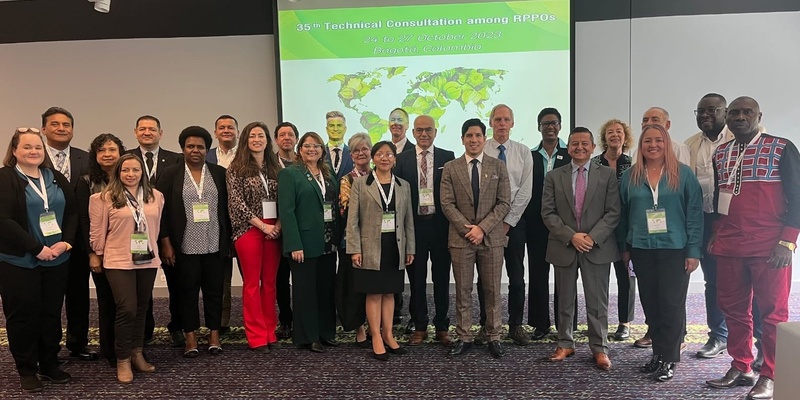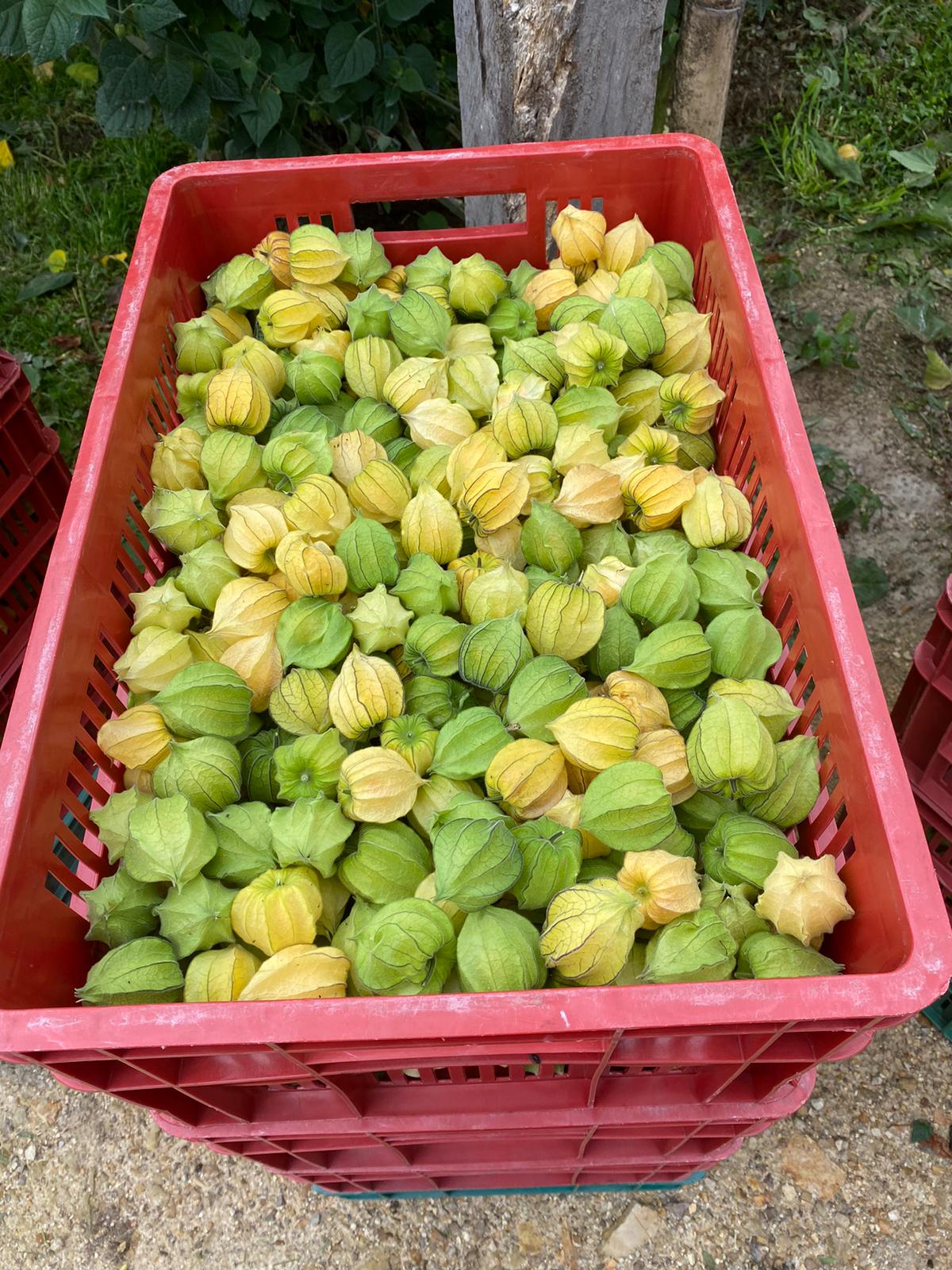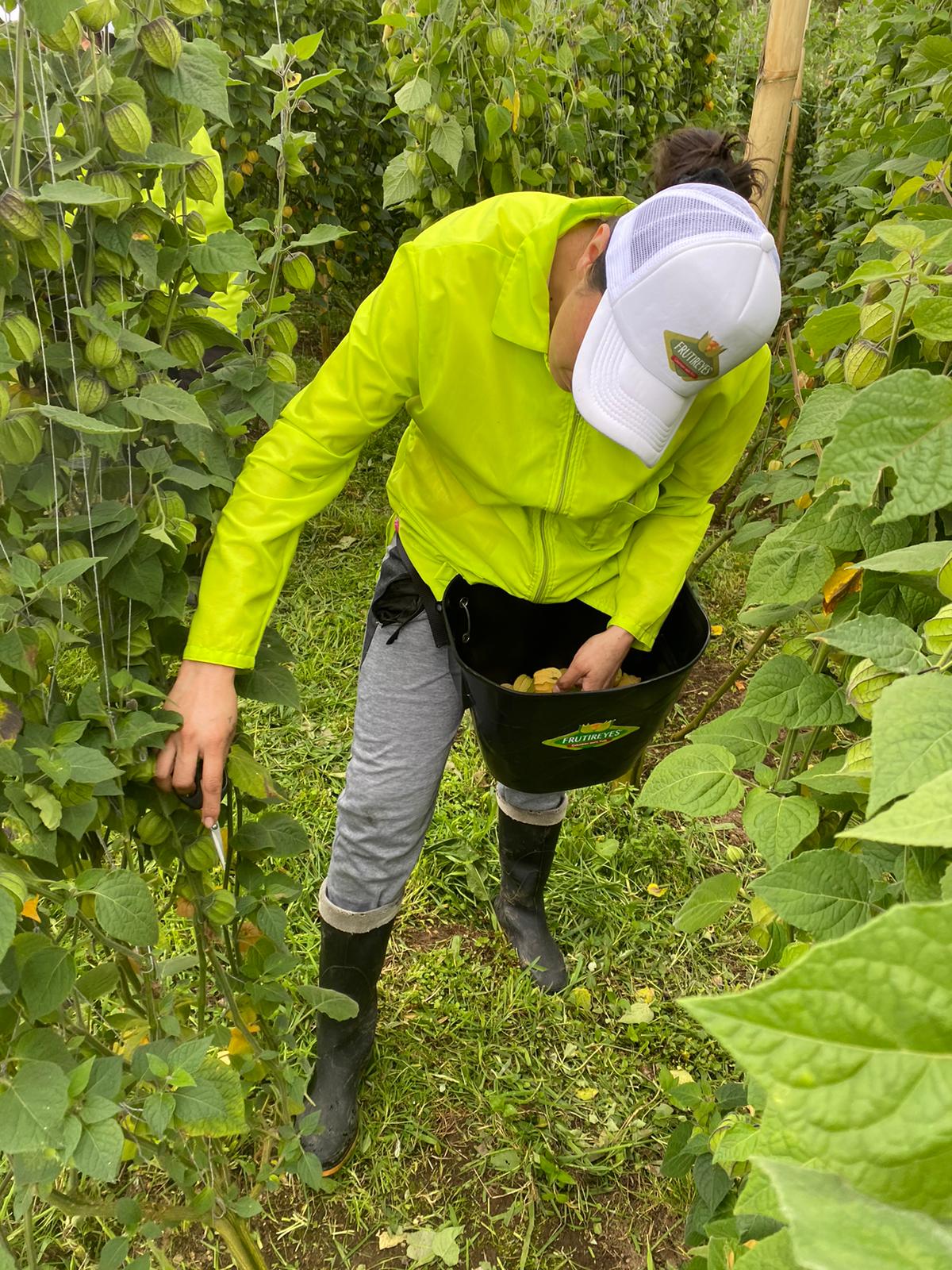Regional plant protection organizations strategize to improve plant health and collaboration
Posted on Tue, 31 Oct 2023, 16:37

© Andean Community/Mara Alejandra Ruiz Rico
Rome, 31 October 2023: Regional plant protection organizations (RPPOs) successfully held the 35th annual Technical Consultation among RPPOs (TC-RPPO) from 24-27 October 2023 in Bogota, Colombia. Annually, the International Plant Protection Convention (IPPC) Secretary convenes TC-RPPOs to promote the development and use of International Standards for Phytosanitary Measures (ISPMs) and encourage inter-regional cooperation in promoting harmonized phytosanitary measures for controlling pests and in preventing their spread or introduction.
Following presentations and discussions on various topics, the TC-RPPO developed an action plan for 2024 that highlights the group’s core activities, schedule of events and follow-up actions to optimise collaboration for better plant health. The plan is a living document that outlines RPPOs’ strategic actions that can support the contribution of plant health in the One Health approach and support implementation of the eight development agenda items of the IPPC Strategic Framework. The former include commodity- and pathway-specific ISPMs; management of e-commerce, postal and courier pathways; strengthening pest outbreak alert and response systems; and harmonization of electronic data exchange. At the meeting, RPPOs approved templates for collecting information on events and pests of regional concern and a proposal on harmonizing RPPO content on the International Phytosanitary Portal (IPP).
Meeting participants heard presentations on the work of 10 RPPOs- Asia and Pacific Plant Protection Commission (APPPC), Caribbean Agricultural Health and Food Safety Agency (CAHFSA), Andean Community (CAN), Comite Regional de Sanidad Vegetal del Cono Sur (COSAVE), European and Mediterranean Plant Protection Organization (EPPO), African Union Inter-African Phytosanitary Council (IAPSC), Near East Plant Protection Organization (NEPPO), North American Plant Protection Organization (NAPPO), Pacific Plant Protection Organisation (PPPO) and Organismo Internacional Regional de Sanidad Agropecuaria (OIRSA), which celebrated its 70th anniversary as an RPPO. Other presentations were from the Colombian Agricultural Institute (ICA), the meeting host, the Latin America office of the Food and Agriculture Organization of the United Nations (FAO), the Inter-American Institute for Cooperation on Agriculture (IICA), a partner organization, Fruitireyes, a cape gooseberry producer, and the Colombia National Association of Commercial Exporters (ANALDEX).
The attendees received several updates, including on IPPC activities, the work of the Commission on Phytosanitary Measures (CPM) Bureau, the IPPC Standards and Implementation and capacity development committees, IPPC regional workshops, adoption of the IPPC ePhyto solution, IPPC communications activities, and coordination of the global action on Fusarium Tropical Race 4 of banana. Other presentations were on the history, orientation, and responsibilities of RPPOs, including supporting roles in the plant health community.
Strengthening leadership of RPPOs
Chaired by Stephanie Bloem, Executive Director of NAPPO, the 35th TC-RPPO welcomed three new RPPO executive directors: Niassy Saliou of IAPSC, Mohamed Habib Ben Jamaa of NEPPO, and Raul Rodas of OIRSA.
In a recorded video message, Osama El-Lissy, the IPPC Secretary, welcomed the new executive directors and thanked the RPPOs for their “contribution to the work of the IPPC community and the collective mission of protecting plant resources and facilitating safe trade.” He emphasized the importance of collaboration at a regional level to produce practical and appropriate solutions to complex phytosanitary issues and pest challenges. Juan Fernando Roa Ortiz, Deputy Director General of ICA and Diego Mora García, FAO Representative and Programme Officer in Colombia, also delivered opening remarks. The TC-RPPO concluded with a field trip to cape gooseberry (Physalis peruviana) production and packing facilities of the Fruitireyes’ company, focusing on the application of the systems approach to the ISPMs. Cape gooseberry is an important economic crop grown in rural and mountainous areas of Colombia and the Andes Mountain range. Utilizing ISPMs for safe trade in Colombia’s cape gooseberry production and packing operations facilitates exports to over 30 international markets.
 |  |
| ©FAO/John Gilmore Freshly picked cape gooseberries | ©FAO/John Gilmore A worker picks cape gooseberries at Fruitireyes farm |

